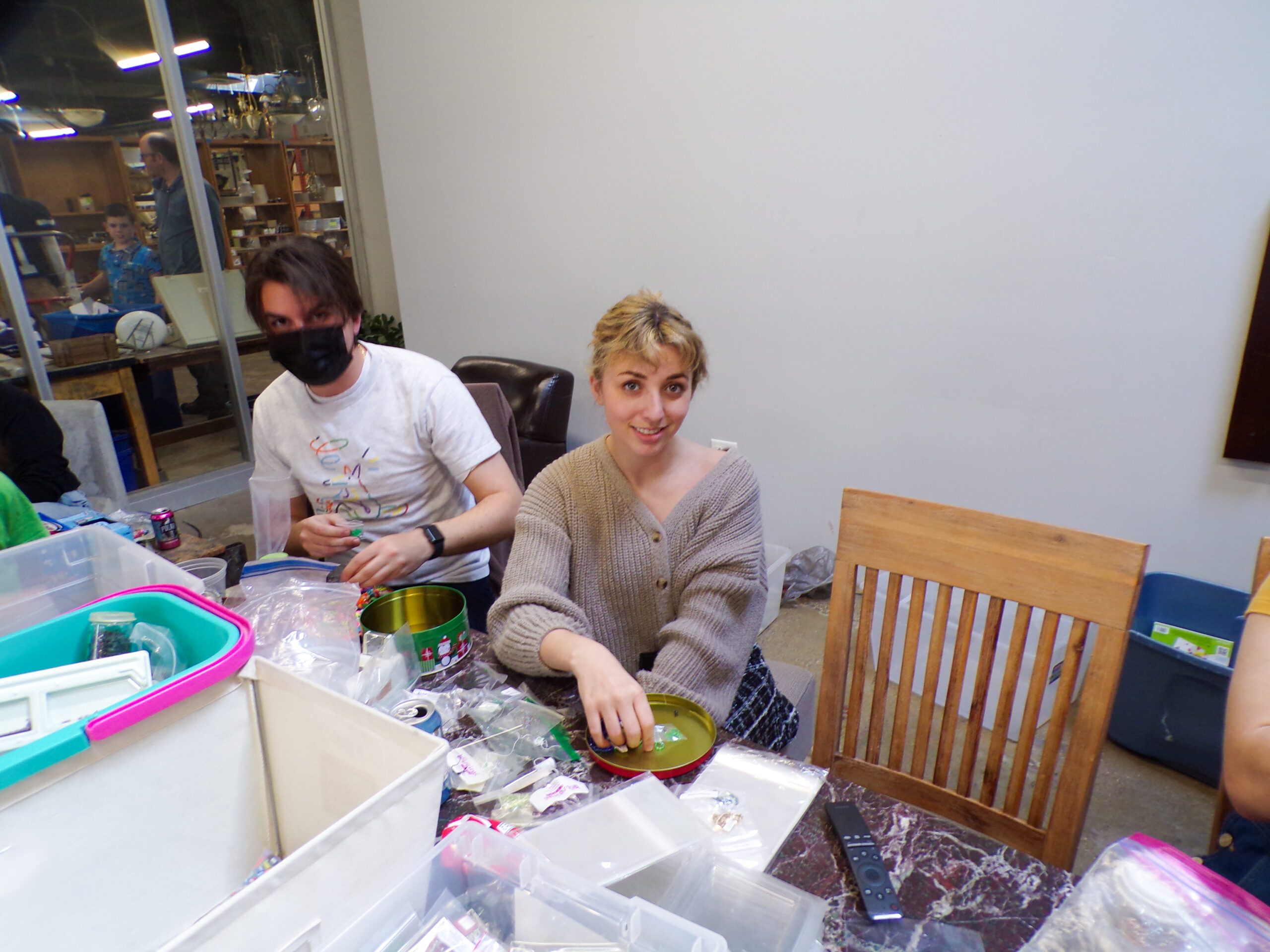The city of Chicago announced a shelter stay policy Nov. 17 in an attempt to accelerate the process of resettlement for shelter arrivals. The press release from Chicago Mayor Brandon Johnson’s Press Office states the policy intends to improve engagement between arrivals and public benefits as well as other support provided by the city.
The city of Chicago announced a shelter stay policy Nov. 17 in an attempt to accelerate the process of resettlement for shelter arrivals. The press release from Chicago Mayor Brandon Johnson’s Press Office states the policy intends to improve engagement between arrivals and public benefits as well as other support provided by the city.
The policy implements a staggered process of distributing 60-day exit notices to current shelter residents based on the date individuals arrived at the shelter, according to the press release.
As the policy has been enforced throughout the city, 16 alderpeoeple — including 49th Ward Alderwoman Maria Hadden and 48th Ward Alderwoman Leni Manaa-Hoppenworth — signed a letter Jan. 25 encouraging Johnson to rescind the policy due to its ineffectiveness and danger to the safety of new arrivals.
“The City has so far shown itself unable to (1) reduce the flow of new arrivals by either imposing bussing fees or impounding buses of migrants being sent to Chicago; (2) assist the upwards of 11,000 eligible people to apply for expedited work authorization; or (3) help those staying in shelters to find alternative housing options,” the letter reads.
Johnson responded to the city council members Jan. 29 by announcing an additional 60-day extension for people set to exit shelters in January and February and an additional 30 days for people set to exit shelters in March, according to an updated press release.
“With this policy extension, we are prioritizing Chicago’s values of compassion and humanity,” Johnson wrote. “I have said repeatedly that we are not going to push families into the cold and this policy ensures that families will remain sheltered for the duration of the winter season.”
Hadden told The Phoenix she hopes the letter brings about candid conversation about both the failures and the successes of the policy. She believes issues and failures of the 60-day stay policy are because of the unique and difficult nature of the migrant crisis in the city of Chicago.
“I think we need to reconsider the policy,” Hadden said. “And you know, I’ll be clear. We have to try things like this. I don’t think it was a mistake to try it.”
The challenge of the crisis is managing a limited amount of resources such as shelters, temporary housing and work, according to Hadden.
The original policy said new arrivals who enter the shelter on or after Nov. 17 would receive a 60-day exit notice immediately upon their entrance into the shelter, according to the press release.
If a shelter resident hasn’t made residential arrangements at the end of their stay, they have the opportunity to return to the bus landing zone and request placement in a new shelter, according to the press release. At landing zones, there’s no guarantee when and where a person will be placed in a shelter.
Shelter residents are eligible for a stay extension under extraneous circumstances such as medical crises or extreme weather conditions, according to the press release.
The release said if a shelter resident has signed a lease but the move-in-date occurs after the conclusion of their stay, shelter residents are eligible to remain in the shelter up until their move-in-date.
The Phoenix wasn’t permitted to enter the shelter to interview shelter employees or shelter residents as the shelters prohibit all media.
Hadden said many people staying in shelters in her ward received exit notices Dec. 4, meaning their initial 60 days will be complete Feb. 2.
“Am I going to have a bunch of people that are put out of shelter come February?” Hadden said. “Because that would be terrible.”
Hadden said the city is making a coordinated effort to prioritize shelter residents who received notices by aiding residents in getting work permits and housing support before their 60 days are complete, but the process isn’t going as quickly as the city had hoped.
Many people who were among the first group to receive exit notices were also eligible for expedited work permits, according to Hadden.
President Joe Biden’s administration authorized expedited work authorizations for people who arrived in the shelters before July 31 in order to accelerate the relocation process for migrants, according to the Associated Press.
People who arrived at the shelters after July 31 are still subject to the existing policy which states a person must wait a minimum of 150 days, plus additional days for processing, before they are able to receive work authorization, according to Hadden.
Hadden said residents who arrived after Nov. 17 won’t be eligible for city and state-funded housing support, but these residents would still be required to follow the city’s exit policy.
“So everyone, between July 31 to Nov. 16, they may be eligible for some housing support but not expedited work authorization,” Hadden said. “And if they’re, you know, here after Nov. 17, there will be no services available to them except for our shelter. And it’s just, you know, this is not the fault of the city, but we need more time.”
In the letter, the alderpeople addressed inadequate food, bed and rodent infestations and medical issues within the shelters and landing zones. The letter also condemns the reliance on volunteers to provide medicine, coats and other warm items.
“To stand by the decision to impose 60-day limits on shelters without addressing these systemic issues leaves new arrivals without options for housing or shelter,” the letter reads. “This situation simply should not be acceptable.”
The four demands of the letter include rescinding the 60-day stay policy, improving shelter conditions, improving and adding housing stock, and appointing a chief homelessness officer.
The chief homelessness officer would be in charge of coordinating the improvement of shelter conditions and housing stock with the state and federal government, according to the letter.
Hadden said she hopes the letter will catalyze a more open conversation about complaints she gets regarding the conditions of the shelters. She hopes the letter ensures people in the shelters are treated like people.
Johnson said the 60-day stay policy would be a responsible use of Chicago tax-payers’ money.
“Above all, we are treating our new neighbors with compassion because it’s the humane thing to do,” Johnson said in a Nov. 16 speech to the press. “Because with support, they can become productive members of our communities, contributing to our economy, our culture and our society.”
The 60-day stay policy also includes regulations against bus companies who don’t follow curfews, landing zone locations and loading and unloading rules in Chicago, according to Johnson.
Since last year, more than 20,000 migrants have been transported to Chicago by bus largely by the direction of Texas Governor Gregg Abbott, according to AP. The new policy attempts to control the increasing number of buses entering Chicago on a daily basis.
“The smart choices we made with this budget, which acknowledges the need and responsibility for other governments to invest in this crisis, has allowed us to keep our promise — a promise to never sacrifice the needs of Chicagoans in support of those who wish to become Chicagoans,” Johnson said in the Nov. 16 speech to the press.
Since Johnson took office May 15, he has opened over a dozen shelters throughout Chicago to accommodate for the influx of migrant arrivals to Chicago, according to AP.
There are two shelters in the 49th Ward and an additional two shelters in the neighboring 48th and 50th Wards, according to Hadden. Hadden said as part of her work as an alderperson she visits the shelters and meets with the residents, but the shelters don’t accept volunteers.
In the 49th Ward, the Leone Beach Park Fieldhouse was converted into a shelter in September, according to Hadden. The space was previously used for storage for the 49th Ward’s summer lifeguard program.
“There are a lot of physical things they have to do to make it more habitable,” Haddens said. “But, you know, they’re not very comfortable places.”
When the Leone Beach Park Fieldhouse was converted to a shelter, it was initially used for single men and was equipped with cots. The space, along with the other 49th Ward shelter located in the Super 8 motel, is now used for families, according to Hadden. There are often multiple families to a room with shared communal spaces.
Hadden said she engages with the shelter residents just like she would with any of her other constituents by attending to specific issues the residents face such as imminent weather.
During a December 2022 snowstorm, Hadden said she brought games and activities to the shelter including a TV from her own home in case the shelter residents were snowed in for multiple days.
In the shelters, social services are brought in on a daily basis to help residents process paperwork, attain work authorizations and find housing support, according to Hadden.
“I think that it’s important for us to be listening to our mutual aid volunteers, right?” Hadden said. “To be listening to our residents in shelters in our communities, so that we can make improvements along the way, because we’re building this bridge as we walk it.”
Featured image by Ryan Pittman / The Phoenix
-

Julia Pentasuglio is a second-year majoring in multimedia journalism and political science with a minor in environmental communication and is one of two Deputy News Editors for The Phoenix. Julia previously interned on the Digital Media team at North Coast Media, a business-to-business magazine company based in Cleveland, Ohio. She has also written freelance for The Akron Beacon Journal. Outside of her love for news and journalistic storytelling, Julia enjoys camping, biking, skiing and anything she can do outside.
View all posts











